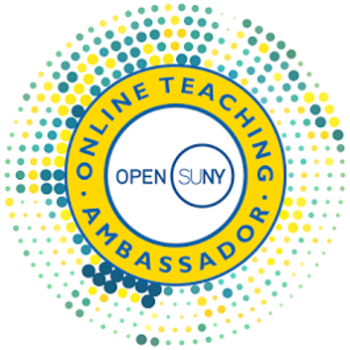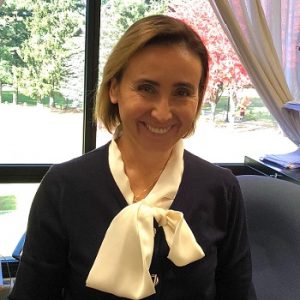Open SUNY Online Teaching Ambassador 2019: Nassau – John Spano

John J. Spano, DC, JD, MPH is a Professor of Biology at Nassau Community College. He received his MS in cellular biology from Long Island University, MPH in public health nutrition from the University of Massachusetts Amherst, DC from the New York Chiropractic College and JD from St. John’s University School of Law. He is a Certified Nutrition Specialist (CNS) through the National Board for Certification of Nutrition Specialists and is certified in Plant-Based Nutrition through the T. Colin Campbell Institute of Cornell University.
Dr. Spano has been actively involved in health care, both clinically and academically, for over 30 years, and has extensive experience in face to face and online course development. The online courses which he developed include Bio 131, Pathophysiology, Bio 209, Principles of Nutritional Science, Bio 210, Current Concepts in Nutritional Science and Bio 226, Investigations in Human BioNutrition. Additionally, he has developed the online doctoral level courses HSCI-710-DL, Introduction to the United States Health Care System and HSCI-865-DL, Principles of United States Health Care Policy and Management, for the University of Bridgeport Doctor of Health Sciences Program.
Currently, in addition to teaching health care related courses, both face to face and online, at NCC as well as at the University of Bridgeport, and practicing law, Dr. Spano is active in tracking trends in legislation affecting public health, health care, and nutrition at the federal, state and local levels and incorporating the most current information into his courses.
“The online learning format provides an opportunity for many students to achieve academic and professional goals that would otherwise go unfulfilled. There has been a dramatic increase in the number of online academic offerings, both course-work and degrees granting, in recent years. There is no doubt that this trend will continue as academic institutions, of all types, are recognizing that quality education can be offered using the online format.”
“Online education does require a significant commitment to time management and consistency on the part of the instructor as well as the student. As an online facilitator, which I feel is the proper title, detail must be placed on the development and deployment of courses that students, with diverse backgrounds and varied educational abilities, will be able to comprehend, follow and complete successfully. Any lack of direction and clarity, which are common weaknesses in online courses, will set students up for failure. Additionally, regular feedback is essential to provide students with a constant and consistent source of guidance and direction. Not all students will be successful with online courses. It is not uncommon for students that are successful with traditional courses to struggle when attempting the online delivery format. However, by developing a course that is organized, without ambiguities, and with consistent and constructive feedback, I feel, we optimize the potential for student success.”











































